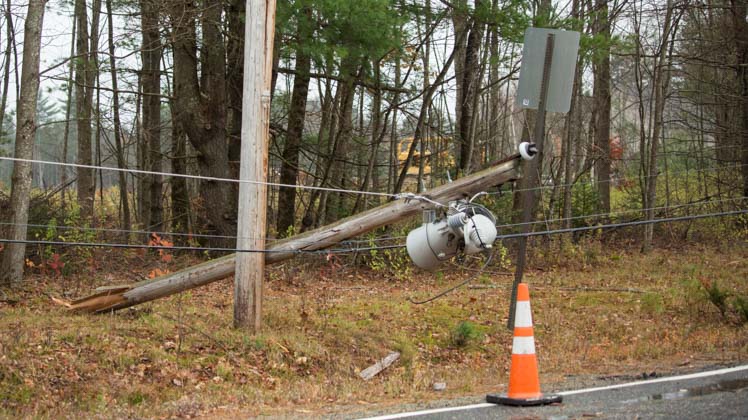Safety Myths

Have you ever heard someone repeat one of these ideas? Believing these frequently repeated myths can be dangerous. If you hear someone express these beliefs, please let them know they are endangering themselves and others.
1. Tires are electrical insulators
Tires are electrical conductors, not insulators. It is true that you are safe in your vehicle when a live wire falls on it. But that's because electricity always seeks the easiest path to the ground. If you remain in the vehicle, the path of the electricity will be on the outside of the vehicle; through the tires, and into the ground. As long as we do not provide a path to the ground through our body the electricity will not enter it. So when an electrical wire falls on your vehicle, stay in your vehicle until help arrives and the power is shut off by CMP. If you have to get out of your car because of a life threatening situation, jump out with both feet together, making sure that you are not touching any part of the vehicle when your feet hit the ground.
2. Power lines are insulated
Ninety percent of outside power lines are not insulated. Furthermore, the lines that are insulated are exposed to rough weather, so you never know what condition the insulation is in. No line is safe to touch, ever.
3. Only high voltage is dangerous
Voltage is the pressure that pushes electricity along, like water though a hose. Amperage (amp), the amount of electricity in any given spot, is what will hurt or kill you. It takes less than one quarter of one amp to put a heart into ventricular fibrillation (irregular beating). Most residents have at least 100-amp service coming into their house; many residents have 200-amp service.
4. When a wire falls to the ground, it automatically shuts off
Often when a wire falls to the ground, it falls on materials that are poor conductors like snow or asphalt. When this happens, our distribution system sees increased request for electricity. Our system can't distinguish between an increase in request for electricity caused by a break in the line or because many people in one area are coming home from work and turning on their electrical appliances. Our circuits are designed to sense short circuits -- sudden requests for unusual amounts of electricity. If this doesn't happen because the wire has fallen on a poor conductor, our line will remain energized. Always treat a downed wire as energized until CMP has shut it off!
5. When a live wire falls, it makes sparks
A power line sparks if it falls to the ground and does not make firm contact with the ground or other material. When a wire falls to the ground and makes firm contact, it will often make no noise or sparks, and will give the impression of being de-energized.
6. Wood is an insulator
Wood is in fact a conductor, though not a good one. The molecules in wood are far apart so it becomes difficult for electricity to jump from molecule to molecule. But the higher the voltage, the easier it is for electricity to move through wood. And if the wood is damp, it changes the equation and wood becomes a good conductor, even at low voltage. So be careful standing on a wooden crate to turn on your main fuse box or when you use a wooden ladder.
7. Household rubber gloves or rubber soled shoes insulate
Only 100 percent pure rubber insulates against electricity. Household gloves and shoes are not made of pure rubber. Often to make these shoes more marketable and durable, additives are mixed in with the rubber-like material. And that makes these gloves and shoes conductors.
